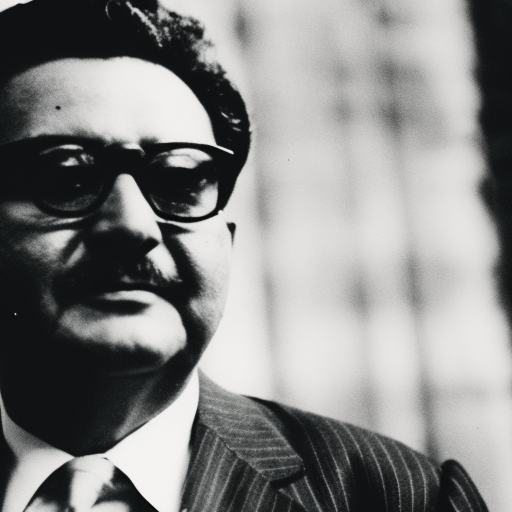Summary: Salvador Allende
Salvador Allende was a Chilean politician who served as the President of Chile from 1970 until his death in 1973. He was the first Marxist to be elected as the head of a Latin American country through democratic means. Allende’s presidency marked a significant shift in Chilean politics, as he implemented a series of socialist reforms that aimed to reduce inequality and nationalize key industries. However, his presidency was cut short by a military coup led by General Augusto Pinochet, which resulted in Allende’s death and the establishment of a military dictatorship in Chile.
Early Life and Political Career
Salvador Allende was born on June 26, 1908, in Valparaíso, Chile. He came from a middle-class family and was exposed to socialist ideas from an early age. Allende studied medicine at the University of Chile and became politically active during his time as a student. He joined the Socialist Party and later the Chilean Communist Party, advocating for workers’ rights and social justice.
Allende’s political career began in the 1930s when he was elected to the Chilean Congress. He served as a senator and later as Minister of Health in the Popular Front government. Allende ran for president three times before finally winning the election in 1970, with a narrow victory.
Allende’s Presidency and Reforms
As president, Allende implemented a series of socialist reforms known as the “Chilean Path to Socialism.” His government nationalized key industries, including copper mining, which was a significant source of revenue for Chile. Allende also implemented land reforms to redistribute agricultural land to peasants and workers. His policies aimed to reduce poverty, improve education and healthcare, and empower workers.
However, Allende faced significant opposition from conservative forces, including the United States government, which feared the spread of communism in Latin America. The U.S. supported opposition groups and implemented economic sanctions to destabilize Allende’s government. This led to economic difficulties and political polarization within Chile.
The Coup and Allende’s Death
On September 11, 1973, General Augusto Pinochet led a military coup against Allende’s government. The coup was supported by the Chilean military, conservative politicians, and the United States government. Allende refused to surrender and made a final speech to the nation, declaring his commitment to democracy and socialism. However, the military bombed the presidential palace, and Allende died during the attack.
The military coup resulted in the establishment of a military dictatorship led by Pinochet. Thousands of people were arrested, tortured, and killed during Pinochet’s regime. The coup and Allende’s death marked a turning point in Chilean history, leading to a period of repression and human rights abuses.
Legacy
Salvador Allende is remembered as a symbol of democratic socialism and resistance against authoritarianism. His presidency and the subsequent coup have had a lasting impact on Chilean politics and society. Allende’s reforms and vision for a more equal society continue to inspire left-wing movements in Chile and around the world.
In recent years, efforts have been made to investigate and bring justice to those responsible for human rights abuses during Pinochet’s regime. Allende’s legacy remains a subject of debate and reflection in Chilean society, as the country continues to grapple with its past and strive for a more inclusive and democratic future.












